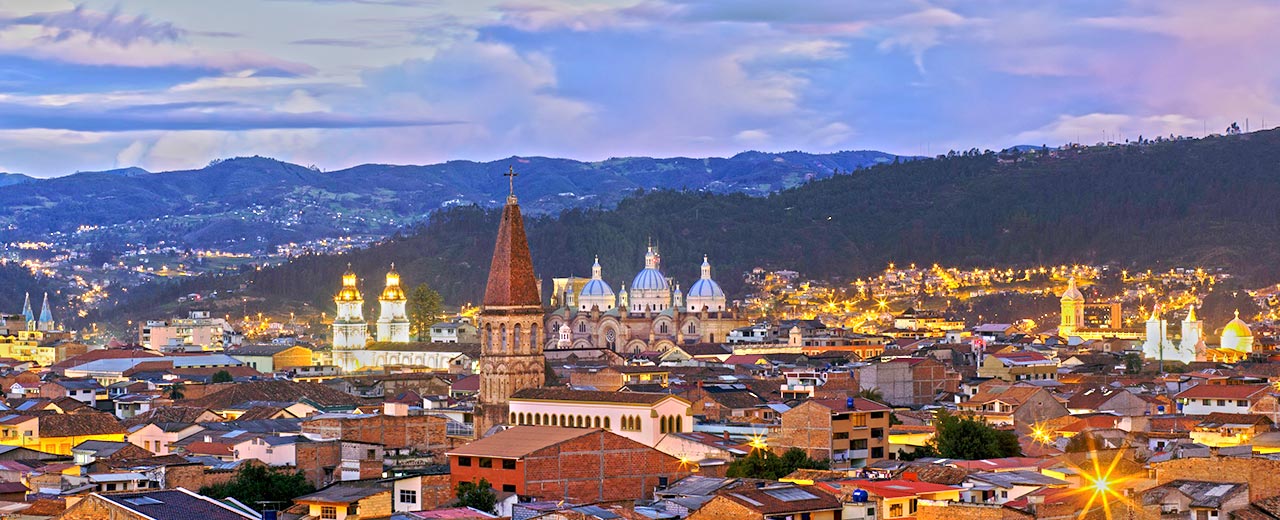Ecuador’s Future in Seven Questions

Taking office on May 24, 2017, on the heels of a bruising campaign and close runoff election, President Lenin Moreno has proceeded to shake up Ecuadoran politics.
Moreno ran on the Alianza PAIS (AP) ticket—the party created and led by outgoing President Rafael Correa. Many observers expected him to continue his predecessor’s policies of constraining the media and civil society, and intimidating his opponents. However, Moreno departed from the status quo soon after taking office, starting a dialogue with the political opposition and civil society organizations. Moreno also bolstered government anti-corruption initiatives—all contributing to an approval rating of more than 80 percent. Still, his new approach has internally divided the AP party and set him at odds with Correa and the former president’s close supporters. Correa remains a highly influential figure leaving office with an approval rating of better than 60 percent.
Last month, President Moreno pushed to further distinguish himself from his predecessor by proposing a referendum on a package of initiatives to strengthen democracy. Moreno asked citizens to suggest questions to be included in that referendum, which the presidency finalized and then presented back to the public on October 2. The Constitutional Court must approve the questions, and the National Electoral Council must set a date for the vote within 60 days. As it now stands, the referendum has the potential to drastically change Ecuador’s political trajectory.
“Consulta Popular”: Seven Questions
Preventing corrupt officials from holding public office:
The first question asks citizens if they favor instituting a ban on anyone convicted of corruption from being able to hold public office. At present, there are multiple ongoing trials involving high-level figures from the previous administration. If approved, this question would lead to laws that would keep several influential people from holding office in the future. The current vice-president, who now on trial for illegal association, is an example.
Term limits:
In 2015, the National Assembly passed an amendment permitting indefinite re-election to the presidency. The second question would cap re-election for all public offices at two terms per person per office. This would prevent Rafael Correa from running for the presidency in 2021, although not for other offices such as governor or mayor or legislator. It would also prevent long-serving Guayaquil mayor Jaime Nebot (from the Partido Social Cristiano – PSC – party) from seeking re-election and would reshuffle the portfolios of long-serving politicians in governor, mayoral, and legislative positions throughout the country.
Replace and evaluate the Citizen Participation and Social Control Council (CPCCS) and its appointments:
The CPCCS is a body that appoints the Ombudsman, the Attorney General, the National Electoral Council, the Elections Disputes Tribunal (in charge of disputes related to campaign financing, which was a major issue during the last elections), and establishes the selection process for the Constitutional Court and the Judicial Council. The CPCCS has long been a critiqued for lacking independence from the ruling party. A “yes” vote here would end the terms of the current council, institute a transitional body, and begin an evaluation of all government officials appointed by the council. At the end of the transition period, these positions will be filled during the sub-national elections.
The four remaining questions play a different role than the first three. Question 4 strengthens sentences against sexual offenders, and comes in the wake of rising reports of sexual abuse in schools. Question 5 would forbid mining in protected areas and increasing the size of the Yasuni National Park. Question 6, would repeal the tax on capital gains to encourage economic growth as well as appeal to business constituencies targeted under the Correa administration. And Question 7, would limit resource extraction to protect Ecuador’s biodiversity, appealing to indigenous sectors alienated by Correa-era policies. In all, the referendum could be divisive, and Moreno seems poised to make new political allies as well as adversaries.
Potential conflicts:
In Colombia, President Juan Manuel Santos’ decision to put the peace deal with the FARC to a plebiscite in Colombia in 2016, attracted opposition from critics, including former presidents who organized a “No” vote campaign. They succeeded because they had a clear message and took advantage of limited public knowledge of the plebiscite’s terms. While Ecuador’s referendum treats different themes, it could attract the opposition of former president Correa who could attempt to leverage his stature to push for a “No” to several of the questions.
Further, rumors have circulated that AP may call for a competing constituent assembly. A Constituent Assembly would require re-writing the constitution, and would open a path way for Correa to return to power, negating the effects of the referendum. However, it can only be initiated by the sitting President, two-thirds of Congress (AP has slightly over half the seats), or by 12 percent of the population. As 75 percent of the population approves of the referendum, this course seems unlikely.
Why this matters:
Many governments in the Americas operate under heavily centralized presidential systems with weak checks on executive power making them prone to corruption and instability. The Moreno government’s referendum offers Ecuador an opportunity to limit some of the powers of the president and demonstrates a commitment to strengthening the rule of law and accountability in the region, now an issue in the wake of Brazil’s Odebrecht scandal, which has tentacles reaching into many neighboring countries. As a member of the Bolivarian Alliance or ALBA countries dominated by authoritarian Venezuela, Ecuador’s move toward the democratic center would make for a more prosperous, secure, and stable political and economic environment in the Americas.
Top